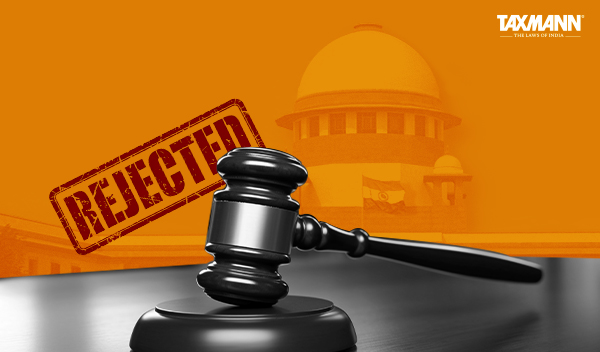Order to Be Set Aside as Payment Through DRC-03 Under Protest Could Not Be Treated as Voluntary Payment | HC
- Blog|News|GST & Customs|
- 2 Min Read
- By Taxmann
- |
- Last Updated on 26 March, 2025

Case Details: Khaitan Foods India (P.) Ltd. vs. State of U.P. - [2025] 172 taxmann.com 440 (Allahabad)
Judiciary and Counsel Details
- Arun Bhansali, CJ. & Kshitij Shailendra, J.
-
Nishant Mishra, Vedika Nath for the Petitioner.
-
Ankur Agarwal, S.C. for the Respondent.
Facts of the Case
The assessee, engaged in the transportation of goods, was subjected to a detention order under Section 129(1) of the CGST Act, leading to the issuance of a show cause notice. In response, the assessee submitted a reply, after which a challan under PMT-06 was generated for the deposit of GST. However, instead of using PMT-06, the assessee deposited the amount through Form DRC-03 in cash under protest. Subsequently, a demand order under Section 129(3) of the CGST Act was passed, specifying a demand amount, and Form GST DRC-07 was issued. Later, the order under Section 129(3) was rectified under Section 161, reducing the demand to ‘NIL’. This rectification effectively prevented the assessee from filing an appeal against the demand that had already been deposited under protest. Aggrieved by the deprivation of his statutory right to appeal, the assessee approached the Hon’ble High Court.
High Court Held
The Hon’ble High Court held that the deposit made through Form DRC-03 with a specific endorsement of ‘under protest’ could not be treated as a voluntary payment. The court emphasized that the rectification of the order under Section 161, resulting in a ‘NIL’ demand, effectively deprived the petitioner of the right to challenge the demand through an appeal. It was observed that the right to appeal is a fundamental procedural safeguard, and such rectification could not be used as a means to circumvent statutory remedies. Consequently, the rectification order was quashed and set aside. Additionally, the court directed that the period during which the petitioner was prevented from filing an appeal due to the rectification order be excluded from the computation of the limitation period for filing an appeal against the original order under Section 129(3) of the CGST Act.
Disclaimer: The content/information published on the website is only for general information of the user and shall not be construed as legal advice. While the Taxmann has exercised reasonable efforts to ensure the veracity of information/content published, Taxmann shall be under no liability in any manner whatsoever for incorrect information, if any.

Taxmann Publications has a dedicated in-house Research & Editorial Team. This team consists of a team of Chartered Accountants, Company Secretaries, and Lawyers. This team works under the guidance and supervision of editor-in-chief Mr Rakesh Bhargava.
The Research and Editorial Team is responsible for developing reliable and accurate content for the readers. The team follows the six-sigma approach to achieve the benchmark of zero error in its publications and research platforms. The team ensures that the following publication guidelines are thoroughly followed while developing the content:
- The statutory material is obtained only from the authorized and reliable sources
- All the latest developments in the judicial and legislative fields are covered
- Prepare the analytical write-ups on current, controversial, and important issues to help the readers to understand the concept and its implications
- Every content published by Taxmann is complete, accurate and lucid
- All evidence-based statements are supported with proper reference to Section, Circular No., Notification No. or citations
- The golden rules of grammar, style and consistency are thoroughly followed
- Font and size that’s easy to read and remain consistent across all imprint and digital publications are applied



 CA | CS | CMA
CA | CS | CMA
